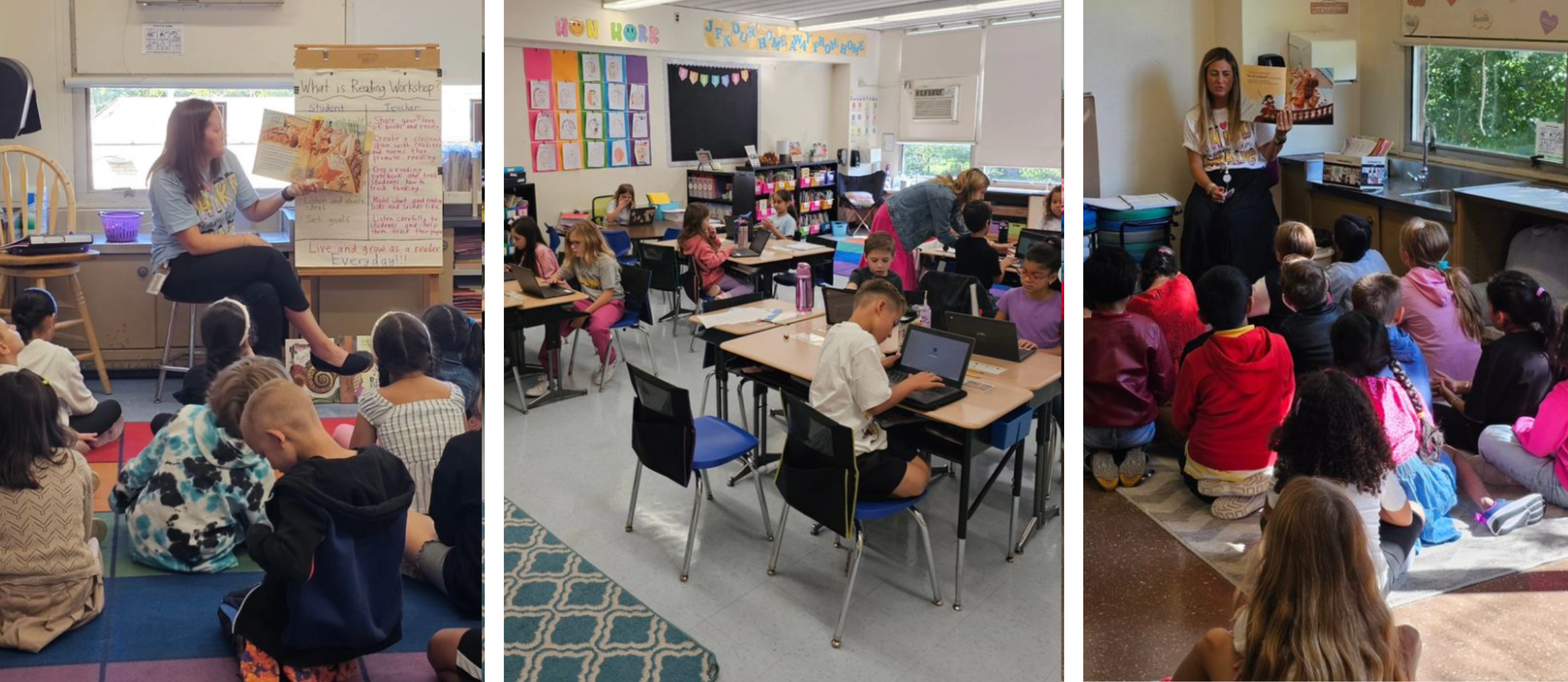Fundraising Ideas to Assist In Saving Temecula Schools and Programs
Understanding the Value of Colleges in Youngster Advancement and Area Growth
Institutions' involvement with neighborhood areas with service-learning initiatives strengthens the bond between families and instructional institutions. This cooperative partnership emphasizes the value of colleges in supporting active citizenship and lifelong learning habits.
Academic Achievement
Academic accomplishment offers as a foundation of kid growth, giving the structure upon which future understanding and success are built. Colleges play a crucial function in promoting this scholastic growth, providing structured atmospheres where kids can acquire essential knowledge and cognitive skills. Standardized educational program make sure that pupils gain effectiveness in core topics such as mathematics, scientific research, and language arts, which are critical for both college and expert chances.
In addition to presenting essential academic skills, colleges also grow crucial reasoning, analytical capacities, and intellectual interest. These cognitive expertises are important for browsing complex real-world scenarios and adjusting to the ever-evolving demands of the contemporary workplace. Teachers, as facilitators of discovering, employ diverse pedagogical approaches to cater to different discovering designs, thereby taking full advantage of specific student possibility.
Furthermore, scholastic success is carefully linked to self-worth and motivation. Kids who experience academic accomplishments are more probable to create a favorable self-concept and a long-lasting passion for knowing. Colleges likewise supply numerous resources, such as collections and innovation, which better enhance the academic experience and prepare trainees for a technologically sophisticated culture.
Social Skill Growth
Beyond scholastic achievement, the role of schools in social ability growth is important. Schools function as a main location for kids to discover and practice crucial social abilities such as problem, communication, and cooperation resolution. In the structured atmosphere of a class, pupils interact with peers, instructors, and various other college staff, supplying countless chances to develop these vital abilities.
Effective social ability growth in institutions is promoted via team activities, collective projects, and extracurricular programs. These communications help pupils comprehend social norms, develop compassion, and promote a sense of community. For instance, team projects instruct pupils exactly how to function together towards an usual objective, pay attention to various perspectives, and browse disagreements constructively.

The farming of social abilities throughout school years lays a foundation for future individual and professional partnerships. Save Temecula Schools. As students develop, the capacity to effectively work together and connect becomes increasingly essential, underscoring the institution's critical function in holistic child advancement
Direct Exposure to Variety
Direct exposure to variety in institutions is basic to fostering an inclusive frame of mind and expanding pupils' perspectives. Schools act as a microcosm of the wider society, and running into diverse societies, languages, and socioeconomic histories within this setting furnishes trainees with essential skills for navigating a significantly globalized world. This exposure motivates empathy, minimizes bias, and advertises common regard among peers.
Research shows that trainees who engage with peers from diverse backgrounds exhibit far better analytic skills and creative thinking. This understanding of diversity prepares pupils for future workplaces that worth modern skills - Save Temecula Schools.

Area Interaction
The advantages of varied class extend beyond the college walls, fostering a strong sense of community involvement amongst students. By interacting with peers from various social, socioeconomic, and ethnic histories, trainees obtain a more comprehensive viewpoint and an admiration for variety. This direct exposure urges them to become active people that want to add favorably to their communities.
Schools that emphasize community engagement typically include service-learning tasks, which permit pupils to resolve real-world issues while using scholastic skills. These jobs not only enhance trainees' understanding of their coursework however likewise instill a sense of responsibility and empathy. Collaborations between schools and regional companies give students with opportunities to get involved in community occasions, additionally solidifying their role as proactive community members - Save Temecula Schools.
In addition, parental and area involvement in institutions reinforces the bond in between academic institutions and the neighborhoods they offer. Via these efforts, colleges play a pivotal function in supporting area interaction and fostering societal growth.
Lifelong Discovering Practices
Developing long-lasting understanding habits is necessary for a child's continual growth and versatility in an ever-changing globe. Colleges play a crucial duty in instilling these habits by producing a setting that cultivates inquisitiveness, critical reasoning, and a love for knowledge. With extracurricular activities and varied educational programs, instructors urge pupils to check out numerous topics, assess details critically, and use their learning to real-world scenarios.

In addition, navigate here schools give a structured environment where children can create self-discipline and time monitoring abilities, both of which are important for continuous knowing. By emphasizing the relevance of establishing objectives, reviewing progress, and adjusting strategies, schools prepare students to browse the intricacies of grown-up life, ensuring they continue to be lifelong students and factors to society.
Conclusion
In final thought, colleges are important in fostering child development and neighborhood growth by giving settings helpful to scholastic achievement, social skill development, and direct exposure to diversity. With collective jobs and communications, schools boost vital reasoning, compassion, and interaction skills. Neighborhood interaction initiatives further strengthen the bond in between instructional institutions and regional neighborhoods. Eventually, institutions grow long-lasting discovering routines, furnishing individuals with the needed expertise and abilities to add favorably to society.
In the organized environment of a class, trainees communicate with peers, teachers, and other college personnel, offering many opportunities to establish these critical capabilities.
In significance, exposure to variety within schools not only improves individual trainees yet also enhances the social textile of the community as a whole.
The benefits of varied class extend past the school walls, cultivating a solid sense of neighborhood involvement amongst students.Institutions that stress area engagement typically include service-learning projects, which allow trainees to attend to real-world problems while applying academic skills. Partnerships in i was reading this between colleges and neighborhood organizations provide students with chances to take part in area occasions, better solidifying their role as positive neighborhood members.